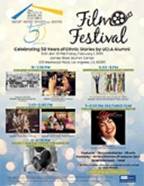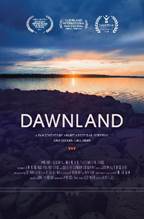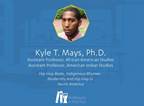Add 'aisclist@aisc.ucla.edu' to your address book to prevent emails from going to your junk folder.

Message from the Director
Chokma AISC friends and family,
Welcome to the Winter quarter (or Spring semester for those of you at the Law School)! I hope everyone had a wonderful holiday. We are excited about our upcoming events (please see below), which includes the kickoff of our 50th anniversary events in February. Also, be sure to check out the new issue of AICRJ on Settler Colonial Biopolitics and Indigenous Resistance, coming January 15.
Applications for the IAC Visiting Scholar program close today!
Chipisala'cho!
Shannon Speed
Director, UCLA American Indian Studies Center
American Indian Studies Center Library: Winter 2019 Hours
The UCLA American Indian Studies Center Library will be opened for limited hours Mondays through Thursday, and staffed by AISC work study students. There will be no trained librarian available for consultation. For this reason, you will be expected to find the materials you need on your own . The AISC Library is a non-circulating library. No food or drinks are allowed inside the library. Winter 2019 Quarter Hours: Hours are subject to change. Thank you for your cooperation and understanding.
|
Professors in the Pub with Kyle T. Mays, PhD
Redondo Beach, CA 90277 United States Cost to attend is $15.00 Early bird special cost is $10.00 before January 9, 2019. Please RSVP by Monday, January 14, 2019. Space is limited Diversity Programs brings you a series of one-hour, guided lecture style discussions and performances with distinguished professors on culturally varied subjects. Join us for happy hour during office hours with Dr. Kyle Mays this January as we partner with both the UCLA Alumni Bay Cities Network and the UCLA Mixed Alumni Association to bring you this special event. Dr. Kyle Mays is an Assistant Professor at UCLA for both African American Studies and American Indian Studies. He is (Black/Saginaw Anishinaabe) is a transdisciplinary scholar and public intellectual of urban history, Indigenous Studies, Afro-Indigenous Studies, and popular culture. More information at: https://alumni.ucla.edu/event/pitp-jan-16/
|
UCLA Institute of American Cultures Film Festival
 Friday, February 1, 2019
Friday, February 1, 2019
11:30 a.m. to 10 p.m.
UCLA James West Alumni Center
325 Westwood Plaza, Los Angeles
In 2019, the UCLA Institute of American Cultures (IAC) and its four ethnic studies centers — American Indian Studies Center, Asian American Studies Center, Ralph J. Bunche Center for African American Studies, and Chicano Studies Research Center — will celebrate five decades of producing ground-breaking knowledge of the changing social and cultural realities in America.
The year-long celebration will open with a film festival featuring thought-provoking and entertaining films made by UCLA alumni that tackle cultural and social justice issues from unique perspectives. Q&A sessions with the films’ writers, directors or producers will follow, and participants can enjoy ethnic food, entertainment, and a chance to mingle with filmmakers.
The feature presentation is the award-winning film “Selena” (1997), the true story of Selena Quintanilla-Perez, a Texas-born Tejano singer who rose from cult status to create top albums on the Latin music charts.Directed by Gregory Nava ’71, MFA ’76, the film stars singer/actress Jennifer Lopez in her breakout role for which she earned a Golden Globe nomination, as well as Edward James Olmos and Jon Seda. Guest speaker will be award-winning Producer Moctesuma Esparza ’71 and MFA ’73, named one of the 50 most powerful and influential Latinos by The Imagen Foundation.
Other films to be screened include:
Asian American Studies Center
“Cruisin’ J-Town” (1974) This documentary by Duane Kubo follows the formation of the popular jazz fusion band, Hiroshima, in the late 70s. Includes a lively cross-cultural jam session between the band and the Chicano performing arts group, El Teatro Campesino.
Speaker: Director Duane Kubo
“My Name is Asiroh” (2013) A young girl named Asiroh is bullied in school about her unusual name and wants to change it.
Speaker: Writer/Director Asiroh Cham ’04, MFA ’12
American Indian Studies Center
“On and Off the Rez with Charlie Hill” (1999) This inspiring and thought-provoking documentary by Sandra Osawa uses humor to challenge racism about Native people in America while profiling renowned American Indian comedian Charlie Hill’s life and rise in comedy. Stars Charlie Hill, Will Rogers, Steve Allen, Dick Gregory, Floyd Westerman and others.
Speaker: Director Sandra Osawa (Makah Tribe) MFA program 1970s
Ralph J. Bunche Center for African American Studies
“Bless Their Little Hearts”(1983) Part of the vibrant New Wave of independent African American filmmakers to emerge in the 1970s and 1980s including director Billy Woodberry, Charles Burnett (“Killer of Sheep”), Haile Gerima (“Sankofa”) and Julie Dash (“Daughters of the Dust”), this story chronicles the devastating toll that joblessness takes on a married couple and their children.
Speakers: Dominic Taylor and Ellen C. Scott, faculty in the UCLA School of Theater, Film and Television
Chicano Studies Research Center
“Requiem-29” (1971) Riveting footage of the August 29, 1970, National Chicano Moratorium civil rights and anti-war protest in Los Angeles which attracted 50,000 Chicanos and led to a riot, inhumane treatment by police, and the death of Los Angeles Times journalist Ruben Salazar.
Speaker: Producer Moctesuma Esparza ’71, MFA ’73 Esparza is an award-winning filmmaker, producer, entrepreneur and activist renowned for his contributions to the movie industry and commitment to Latinos. He is regarded as one of the most influential Latinos in the U.S. for the past three decades.
“Chicana” (1979) Considered the first major feminist Chicana documentary, depicting the contributions of women as workers, mothers, activists, educators, leaders, and other roles, despite their generally oppressed status in Latino culture.
Speaker: Director/Writer/Producer Sylvia Morales ’72, MFA ’79
Ticket registration. For more information, please visit https://www.iac.ucla.edu/ or contact Sophia Fischer, sfischer@conet.ucla.edu, (310) 825-6515.
"Dawnland" Film Screening and Panel Discussion
 Wednesday, February 20, 2019
Wednesday, February 20, 2019
5 – 7:30 PM
Lenart Auditorium in the UCLA Fowler Museum
Join us for a special screening of "Dawnland" with a panel discussion with Sandy White Hawk from the Truth and Reconciliation committee and the executive producer and cultural educator of Pasamaquoddy issues, Chris Newell.
“My foster mother told me … she would save me from being Penobscot.”
For most of the 20th century, government agents systematically forced Native American children from their homes and placed them with white families. As recently as the 1970’s, one in four Native children nationwide were living in non-Native foster care, adoptive homes, or boarding schools. Many children experienced devastating emotional and physical harm by adults who mistreated them and tried to erase their cultural identity.
Now, for the first time, they are being asked to share their stories.
In Maine, a historic investigation—the first government-sanctioned truth and reconciliation commission (TRC) in the United States—begins a bold journey. For over two years, Native and non-Native commissioners travel across Maine. They gather testimony and bear witness to the devastating impact of the state’s child welfare practices on families in Maliseet, Micmac, Passamaquoddy and Penobscot tribal communities. Collectively, these tribes make up the Wabanaki people.
Special AICRJ issue "Settler Colonial Biopolitics and Indigenous Resistance"
The next issue of the American Indian Culture and Research Journal will be available online January 15 and in print February 1. Guest edited by René Dietrich, this issue offers a discussion of settler-colonial biopolitics as it targets Indigenous life across a range of transnationally related, yet distinct, sites of colonial settlement, including Australia, El Salvador, the United States, and Canada. It includes a response essay by J. Kēhaulani Kauanui and a conversation with poet Deborah Miranda.
AICRJ: Call for Reviewers
AICRJ is soliciting qualified scholars to review submitted manuscripts and to write book reviews. We seek scholars from a broad spectrum of fields but are particularly interested in those with expertise in California Indians, Pacific Islanders, performance, art, healthcare, communications/social media, labor, poverty, voting, commerce, data, biopolitics, and any aspect of science. Please email Acting Editor Pamela Grieman and request a reviewer form at aiscsubmissions@aisc.ucla.edu.
IAC 2019–20 Visting Researcher Fellowship Program: Applications Now Opened!
The Institute of American Cultures offers in-residence appointments to support research on African Americans, American Indians, Asian Americans, and Chicanas/os. We especially encourage applications that advance our understanding of new social and cultural realities occasioned by the dramatic population shifts of recent decades, including greater heterogeneity within ethnic groups and increased interethnic contact.
The 2019–2020 IAC Visiting Research Scholar will receive funding for one or more quarters and may receive up to $35,000 for three quarters (contingent upon rank, experience, and date of completion of their terminal degree). In the event that an award is for less than three quarters or a nine-month appointment, the funds will be prorated in accordance with the actual length of the award. The Visiting Research Scholar must have a home institution. The Visiting Research Scholar funds will be paid through their home institution and will be expected to continue their health insurance through that source. These funds can be used to supplement sabbatical support for the total that does not exceed the candidate’s current institutional salary. Awardees may receive up to $4,000 in research support. The Bunche Center for African American Studies will not have a Visiting Scholar this academic year.
Eligibility Requirements:
Applicants must be citizens or permanent residents of the United States and hold a Ph.D. from an accredited college or university (or, in the case of the arts, an appropriate terminal degree) in a relevant field at the time of appointment. UCLA faculty, staff, and currently enrolled students are not eligible to apply.
Deadline:
Applications are available November 1, 2018. Completed applications must be received by 11:59 pm January 10, 2019. Incomplete applications will not be reviewed. Applicants will be notified in March.
TO APPLY: Application is available online at: https://sa.ucla.edu/IAC/VisitingScholar
IAC 2019–20 Research Grants: Applications Now Opened!
The Institute of American Cultures (IAC) invites applications for support of research on African Americans, American Indians, Asian Americans, and Chicanas/os for 2019–2020. The Institute also invites proposals on interethnic relations that will increase collaboration between the Centers and/or between the Centers and other campus units.
Eligibility Requirements:
UCLA faculty, staff, graduate students, and IAC Visiting Scholars.
Funding: The Research Grant Program is on a reimbursement basis only. Funds for the purchase of permanent equipment will be provided only under exceptional circumstances. Conference travel, whether the applicant is presenting or attending, is not reimbursable.
Grant Period: July 1, 2019 through May 31, 2020.
Deadline: Applications are available November 1, 2018 and must be received by 11:59 p.m., March 1, 2019. Incomplete applications will not be reviewed. Applicants will be notified in May.
Prior to submission of the application, applicants should briefly discuss their proposal with the Coordinator of the appropriate Center, or in the case of interethnic proposals, with each applicable Center. All grant recipients, where appropriate, must comply with UCLA’s Protection of Human Subjects in Research before receiving funding.
To Apply: Application is available online at: https://sa.ucla.edu/IAC/ResearchGrant
Stay Connected with AISC
|
® All Rights Reserved. © UCLA American Indian Studies Center
405 Hilgard Ave., 3220 Campbell Hall, Box 951548, Los Angeles, CA 90095-1548
310.825-7315 | www.aisc.ucla.edu | aisc@ucla.edu

 Wednesday, January 16, 2019
Wednesday, January 16, 2019